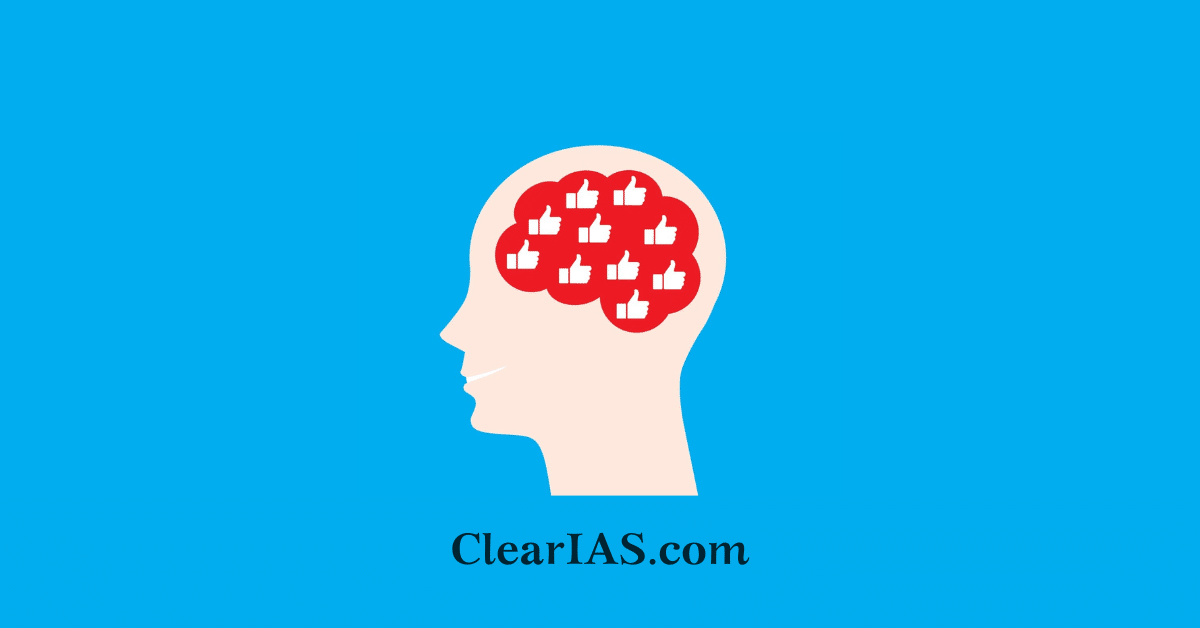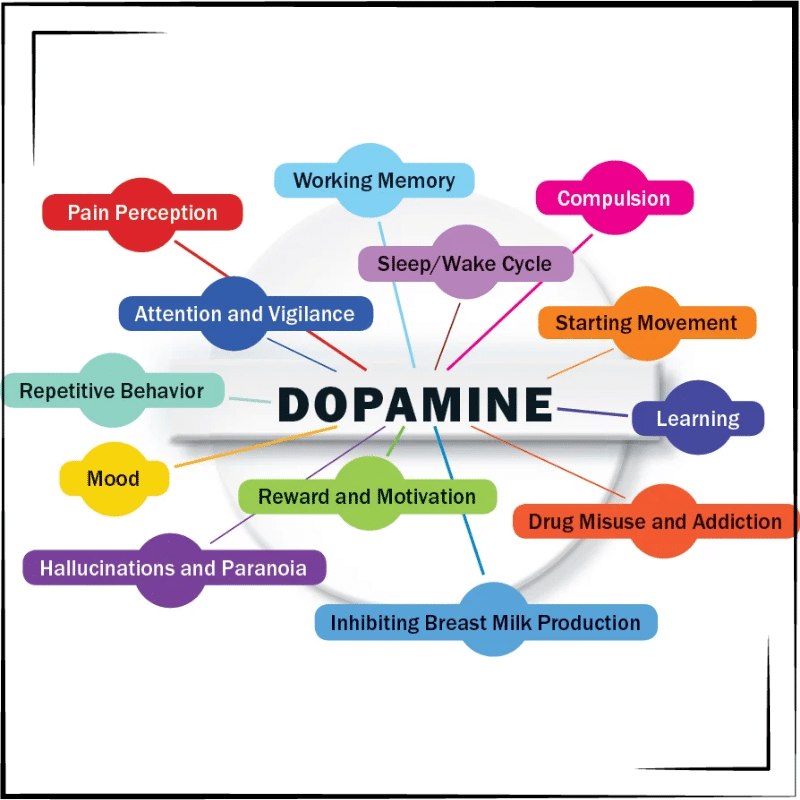
Once an evolutionary tool that drove human survival and motivation, dopamine has now become a symbol of imbalance in the age of overstimulation. The phenomenon of “dopamine overdose” captures how modern lifestyles are rewiring our brains, transforming the pursuit of happiness into a cycle of compulsion and burnout. Read here to learn more.
Modern lifestyles, marked by constant digital engagement, stress, and instant gratification, have led to a state of dopamine overload, rewiring the brain’s reward systems.
Neuroscientists warn that excessive stimulation from social media, short videos, and notifications activates the brain’s reward circuits like addictive drugs, resulting in attention deficits, anxiety, and emotional fatigue.
Understanding Dopamine and Its Role in the Brain
Dopamine is a neurotransmitter responsible for regulating pleasure, motivation, and reward.
- Every time a person experiences joy, whether from food, success, or affection, dopamine levels rise, reinforcing that behaviour.
- This system, known as the reward pathway, evolved to encourage activities crucial to survival and social bonding.
- The mesolimbic pathway, linking the ventral tegmental area to the nucleus accumbens, plays a key role in this process.
- However, the same mechanism that once reinforced positive behaviours is now being hijacked by modern stimuli, from addictive substances to digital devices.
The Science of Dopamine Overdose

- Dopamine operates as the brain’s “reward currency.”
- Addictive drugs like cocaine, nicotine, and alcohol cause massive dopamine surges, overstimulating reward centres.
- Over time, the brain adapts by reducing dopamine receptor sensitivity, requiring greater stimulation to feel pleasure, leading to addiction and desensitisation.
In today’s digital world, a similar process unfolds without chemicals.
- Social media notifications, video games, and online entertainment deliver small, frequent bursts of dopamine, much like slot machines dispensing unpredictable rewards.
- Each “like,” comment, or ping triggers a reward loop, conditioning the brain to crave continuous engagement.
- Functional MRI studies show that the same brain regions activated during drug addiction light up during social media use.
- Thus, technology, while outwardly harmless, has become a powerful behavioural stimulant.
The Psychological and Social Consequences
This constant bombardment of digital dopamine has profound implications for mental health and social behaviour.
- Attention spans are shrinking, multitasking has replaced mindfulness, and deep focus is increasingly rare.
- A growing body of research links excessive screen time to anxiety, depression, and low self-esteem, particularly among adolescents and young adults.
Teenagers are especially vulnerable because their brains are still developing. The prefrontal cortex, responsible for impulse control and long-term planning, matures slowly, while the reward system develops early, creating a neurological imbalance.
- Studies show that adolescents spending over three hours a day on social media report significantly higher symptoms of mental distress.
- Their brains, accustomed to instant gratification, struggle with delayed rewards such as studying or skill-building.
Moreover, dopamine saturation dulls sensitivity to natural rewards.
- A simple meal, a walk, or a conversation no longer feels pleasurable compared to digital stimulation.
- This phenomenon, called reward deficiency, contributes to emotional numbness, fatigue, and declining motivation, symptoms commonly observed in modern work and education environments.
Impact on mental health
Domain |
Effects |
Cognitive |
Reduced attention span, memory lapses, difficulty in deep focus. |
Emotional |
Anxiety, mood instability, lower baseline happiness. |
Behavioural |
Compulsive scrolling, procrastination, digital withdrawal symptoms. |
Physical |
Sleep disruption, fatigue, poor posture, reduced physical activity. |
Global Health Implications
The World Health Organisation (WHO) recognises digital overuse and screen dependency as emerging public health issues.
- Globally, depression and anxiety rates have surged, with a strong correlation to excessive technology use.
- In India, where smartphone penetration is among the highest in the world, studies show that 75% of adolescents check their phones within five minutes of waking up.
- This constant connectivity disrupts sleep patterns, emotional regulation, and even cognitive performance.
The dopamine imbalance is affecting children’s cognitive development.
- The overuse of fast-paced digital content impairs attention control and memory formation, potentially reducing the ability to engage in sustained learning.
- If left unchecked, societies risk nurturing generations that are hyperconnected yet emotionally disconnected.
Restoring Balance: Tackling Dopamine Overdose
Addressing dopamine overload requires both individual discipline and systemic intervention.
- Dopamine fasting: Taking breaks from overstimulating activities helps the brain reset its reward system.
- Simple practices such as silencing notifications, reducing screen time, and engaging in offline hobbies can restore balance.
- Physical activity: Meditation and time in nature naturally boost dopamine in controlled ways, enhancing focus and emotional stability.
- Prioritising deep work, meaningful relationships, and mindfulness fosters sustained satisfaction instead of fleeting pleasure.
- Sleep hygiene, proper nutrition, and emotional awareness are equally crucial to maintaining neurotransmitter balance.
At a policy level, digital well-being frameworks should be integrated into national health strategies.
- Governments can regulate persuasive technologies, ensure transparency in algorithmic design, and promote digital literacy in schools.
- Workplaces can adopt wellness programmes that value mental health alongside productivity.
Conclusion
The dopamine dilemma also raises deeper ethical and philosophical questions.
Has the pursuit of constant pleasure made society more restless and disconnected? Are we sacrificing depth for stimulation? In an age where attention is monetised, reclaiming control over our minds becomes an act of resistance.
True progress lies not in the endless pursuit of novelty but in the ability to experience contentment through balance and presence.
What once guided humanity toward survival and fulfilment is now driving compulsive behaviour, distraction, and discontent.
To reclaim mental well-being, societies must learn to live in harmony with their biology, using technology as a tool, not a trap.
A balanced dopamine system is not about eliminating pleasure but rediscovering meaning.
In restoring balance to our neurochemistry, we may rediscover what it truly means to be human in the digital age.
Related articles:






Leave a Reply